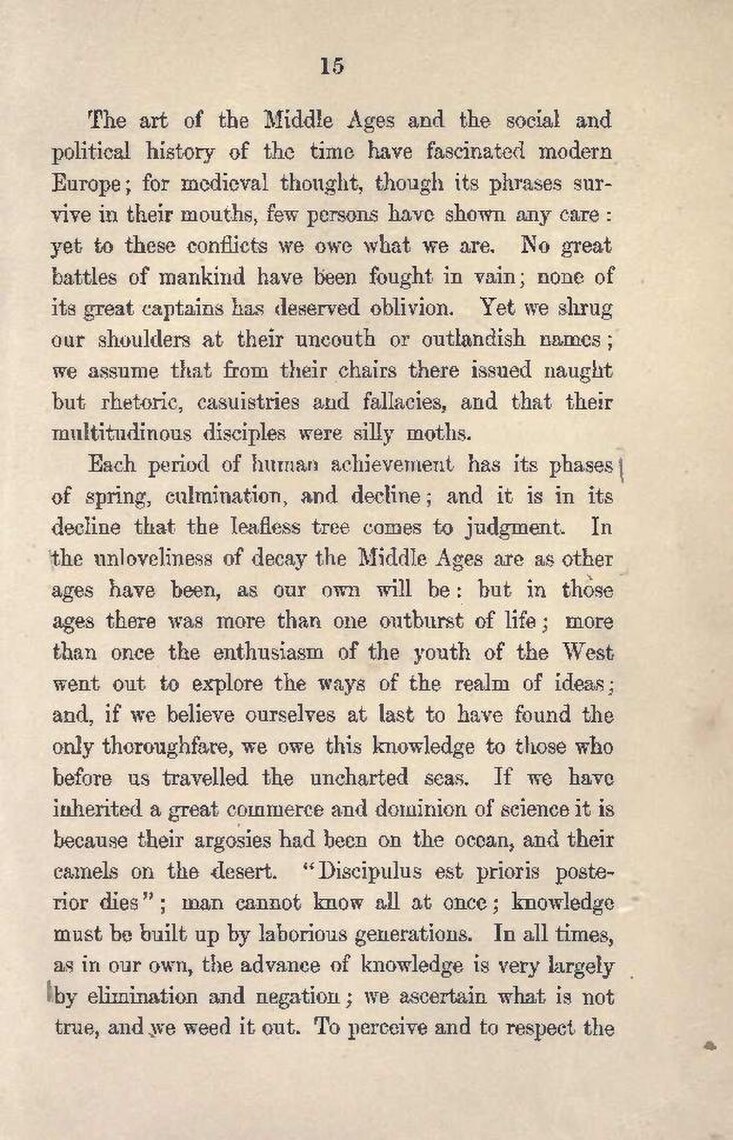The art of the Middle Ages and the social and political history of the time have fascinated modern Europe; for medieval thought, though its phrases sur- vive in their mouths, few persons have shown any care: yet to these conflicts we owe what we are. No great battles of mankind have been fought in vain; none of its great captains has deserved oblivion. Yet we shrug our shoulders at their uncouth or outlandish names; we assume that from their chairs there issued naught but rhetoric, casuistries and fallacies, and that their multitudinous disciples were silly moths.
Each period of human achievement has its phases of spring, culmination, and decline; and it is in its decline that the leafless tree comes to judgment. In the unloveliness of decay the Middle Ages are as other ages have been, as our own will be: but in those ages there was more than one outburst of life; more than once the enthusiasm of the youth of the West went out to explore the ways of the realm of ideas; and, if we believe ourselves at last to have found the only thoroughfare, we owe this knowledge to those who before us travelled the uncharted seas. If we have inherited a great commerce and dominion of science it is because their argosies had been on the occan, and their camels on the desert. "Discipulus est prioris poste- rior dies"; man cannot know all at once; knowledge must be built up by laborious generations. In all times, as in our own, the advance of knowledge is very largely by elimination and negation; we ascertain what is not true, and we weed it out. To perceive and to respect the
